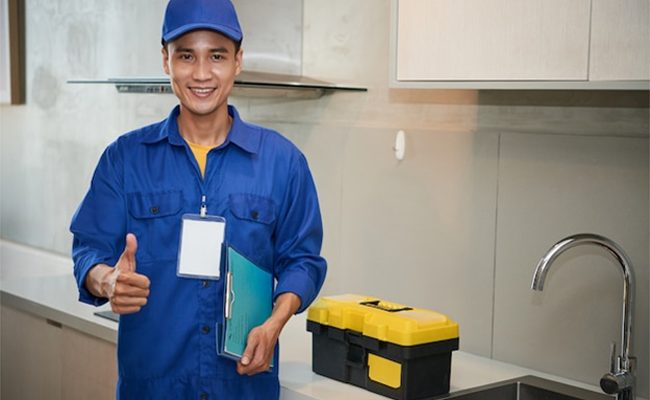
Anyone willing to roll up their sleeves and get their hands dirty is ready to try their hands at DIY plumbing repairs. But there are some jobs better left for the professionals.
While most people can deal with a clogged drain, running toilet, or leaking faucet, bigger plumbing repairs rely on specialized tools and experience that the average homeowner doesn’t have.
Trying to fix them anyways can lead to bigger problems and damage to your home. Worse still, these issues can wind up costing more than if you hired a plumber to deal with them in the first place.
Financial Assistance is Available for Plumbing Emergencies
If you don’t have savings, you might feel as though you have no choice but to try a DIY repair. But luckily, there are personal loans online like a line of credit that can help.
After you compare the available personal loan options online, you can apply for a line of credit that fits your financial needs. If approved, you can draw against your limit to cover essential plumbing repairs.
Why Would You Borrow Money to Fix Your Plumbing?
Borrowing money is a big deal, no matter how often you do it or how much (or little) debt you carry. While a line of credit can help in some situations, you don’t want to over-rely on this financial product when you don’t have to.
So, how can you tell if applying for a personal line of credit is worth it? Here are three plumbing issues that require an expert’s touch.
1. Repairing or Installing a New Water Heater
The water heater in your home is a complex appliance that’s under tremendous pressure and, in many cases, attached to a gas line. Fiddling with this appliance — or installing a new one — without knowing what you’re doing can cause extensive damage to your home and harm to your family.
To add insult to injury, you could nullify your heater’s warranty or homeowner’s insurance by making DIY repairs. This means you can’t rely on these safety nets in case your tinkering results in flooding or other damage.
Worst of all, both gas and electric water heaters can explode when installed incorrectly, and these eruptions can be deadly.
2. Flooding
An overflowing toilet, burst pipes, or a storm pipe backflow — these flooding situations aren’t meant for the faint of heart, nor are they easily fixed by an amateur. There’s not much you can do in these situations, besides turning off your main water valve.
Flooding can be caused by a backup deep in your pipes well beyond your reach or tree roots clogging the drain and sewer pipes. Only professionals have the tools to identify and repair these issues.
Attempting to do it yourself could result in even more damage to your pipes, and a bigger bill from a plumbing company.
3. Foul Odors
If you start to notice a sulphur or sewage smell in your bathroom, it’s time to call the professionals. Sulphur — which you know by the smell of rotten eggs — could indicate you have a clog or an empty p-trap.
However, there’s a chance it’s a problem with your water heater or sewer lines. Once again, only licensed and trained professionals should ever service these areas of your home.
Bottom Line:
While you might safely take on some DIY projects around the house, there are some things you should never do on your own. Remember this if you ever deal with water heater troubles, flooding, or foul odors.
Leave a Reply